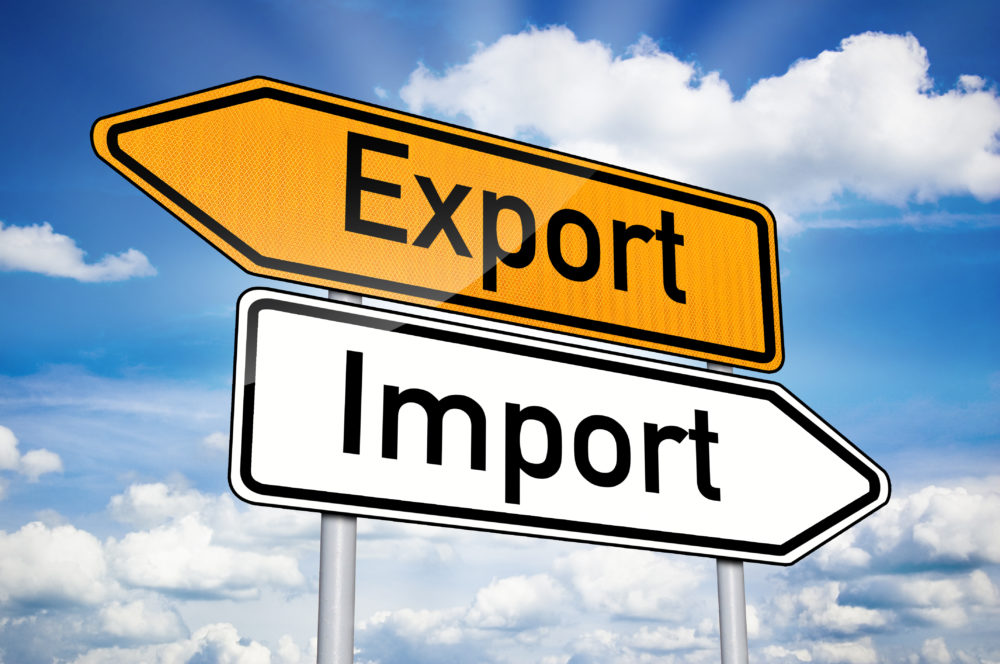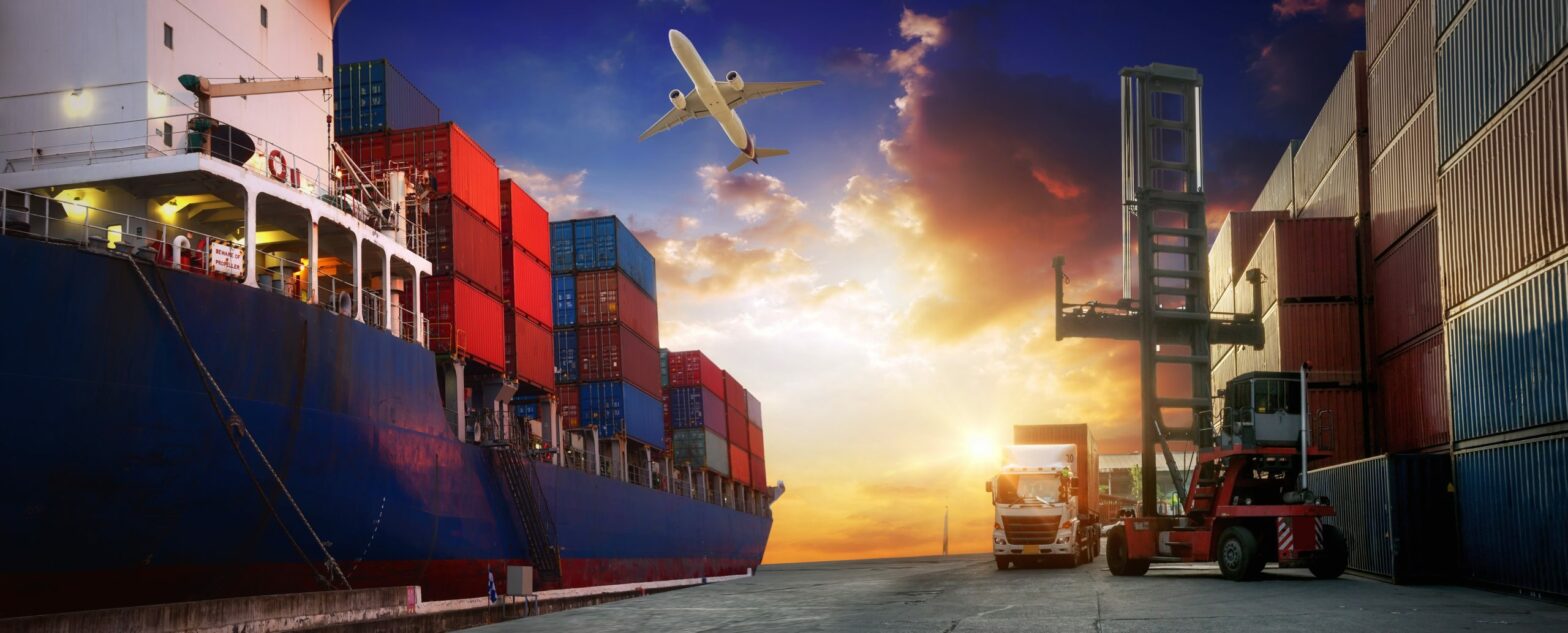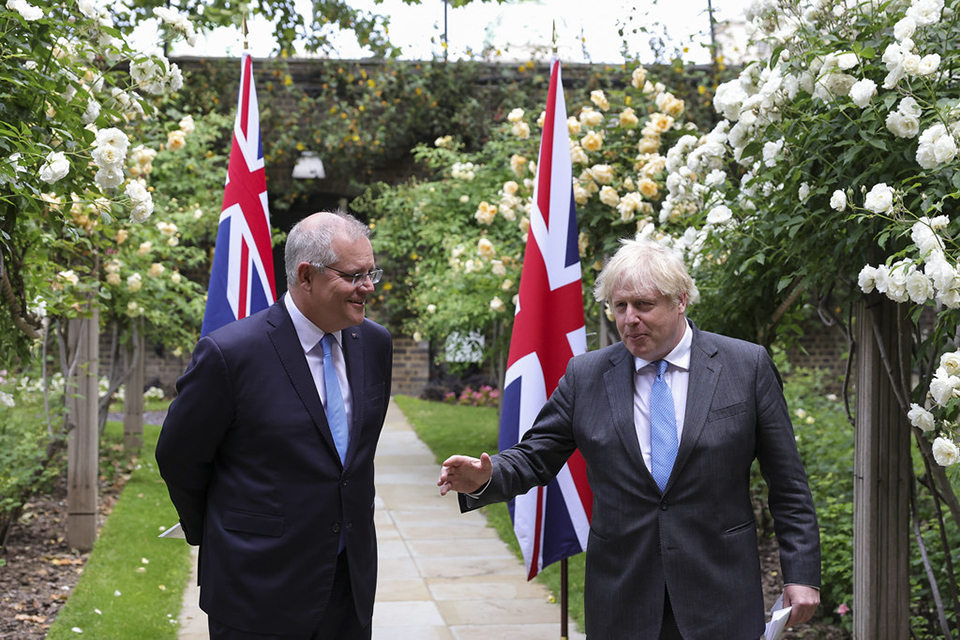FOB – which stands for Free on Board – is an Incoterm you might have come across when negotiating the purchase of goods for import to the UK.
But what exactly does FOB mean – and why does it matter?
Incoterms are important because they help define who is responsible for the costs and risks involved in international trade. Using the wrong Incoterm when buying goods from overseas can be an extremely costly mistake. You might find yourself needing to pay expenses you’ve not planned for, or your shipment might take longer than necessary.
Learn more about the advantages and disadvantages of FOB terms when buying goods from abroad, here.
FOB meaning
If you’re buying goods from a supplier based abroad, you’ve probably come across Incoterms. These are International Commercial Terms, defined by the International Chamber of Commerce. Incoterms appear in contracts and quotations from suppliers, and should explain who is responsible for the tasks and costs involved in international shipping.
Free on Board – which is more commonly called FOB – is most commonly used in sea freight. It’s a popular way to arrange import of consumer goods from Asia to Europe, for example.
Under FOB terms, the seller is effectively responsible for costs up to the point that the goods are loaded onto a ship, at a named port in the country of origin, and ready for transportation.
How FOB works
FOB terms mean that the seller will make arrangements to get the goods as far as an agreed port in their country of origin. That should cover local haulage, loading and export customs clearance. From that point, the buyer becomes responsible for the costs and risks involved in the shipment.
FOB Price
Under FOB terms, as buyer you become responsible for the costs of your shipment, once it is on the water and headed to the UK. You’ll need to make your own arrangements to have your shipment unloaded at the port in the UK, cleared through customs, and then moved to your store or warehouse by lorry.
Importing under FOB terms will mean that you pay your supplier more than you might under another arrangement – such as buying Ex Works. That’s because what you’re buying from the supplier includes not only the goods themselves, but also their transport to a port, and everything else needed to clear export customs.
One potential issue with buying FOB is that cross border transactions can be pricey. That can increase your overall costs significantly, and damage your profit margin. As well as the upfront fees added for international transactions, it’s common for banks to add a markup to the exchange rate they offer customers. That means that entrepreneurs buying from overseas pay over the odds every time they make an international transfer.
You could be much better off choosing a specialist in international payments like TransferWise, instead of going through your normal bank to pay your overseas supplier. With TransferWise you can make international payments using the real, mid-market exchange rate, with just a small transparent fee. That can mean your international payment is up to eight times cheaper than paying the same invoice through a UK high street bank. TransferWise is FCA regulated – just like your normal bank – and trusted by over three million customers around the world.
FOB risks
If you buy products overseas using FOB terms, you take on the risk and costs associated with the shipment, from the point it’s loaded onto a vessel for transportation. That means any loss, damage, or added costs from that stage onwards fall to the buyer.
Summary of FOB
Here’s a breakdown of where cost and risk lie, at different stages of the import process when using FOB terms.
| Allocation of costs using FOB Terms | |
| Export customs procedures | Seller |
| Transport to export port/airport | Seller |
| Unloading of truck in port | Seller |
| Loading goods onto vessel/airplane | Seller |
| Transportation to UK | Buyer |
| Insurance | Buyer |
| Unloading at destination port/airport | Buyer |
| Loading for local haulage in UK | Buyer |
| Transport to final destination in UK | Buyer |
| Import customs clearance | Buyer |
| Import duties and taxes | Buyer |
Advantages of FOB
FOB is one of the most commonly used Incoterms – so you’ll not be surprised to hear that it has a few distinct advantages.
Seller deals with local export processes
Under FOB terms, your seller will arrange for the goods to be moved locally to the port you agree in the country of origin. They’ll also sort out the export processes there, and have the goods loaded onto a ship for you. This means you don’t need to worry about navigating an unfamiliar export procedure, or finding local haulage firms. It also means that, if there is an error in the export declaration, and the costs of customs duty go up, the seller will be charged, not you.
Buyer retains control of international shipping arrangements and costs
Although the seller will make sure your goods reach the port, you can choose which international shipping company you use. You might have a freight forwarder deal with this aspect of the process, or make arrangements yourself with an individual shipping firm. Either way, you retain a high degree of control over your shipment.
Disadvantages of FOB
There are some possible disadvantages of using FOB terms you’ll need to be aware of, too.
Higher unit prices
You’ll usually find that the unit prices of goods to be provided under FOB terms is higher than if you’re looking at Ex Works (also called EXW) shipments. However, this doesn’t necessarily mean the overall cost will be higher, as this price includes some transport costs.
Supplier might include a markup on the local transport costs
Because you don’t have control over the arrangements for getting your products to the port in the country of origin, you can’t be sure you’ll get the best available deal. You might find that the supplier adds a percentage to the actual costs, and keeps it as their own profit.
FOB VS EXW
To decide if FOB terms are right for you, it helps to know a bit about other common options. Ex Works (also called EXW) shipments are another option you might consider. With EXW terms, the buyer is responsible for every cost, and all of the risk, involved in the transportation of your goods to the UK. That means you have a high degree of control over the shipment, but also that any surprise additional costs are your responsibility.
Here’s a brief comparison of how costs are divided, using FOB and Ex Works Incoterms – and there’s more about EXW terms in this helpful article.
| Allocation of costs using FOB Terms | Allocation of costs using EXW Terms | |
| Export customs procedures | Seller | Buyer |
| Transport to export port/airport | Seller | Buyer |
| Unloading of truck in port | Seller | Buyer |
| Loading goods onto vessel/airplane | Seller | Buyer |
| Transportation to UK | Buyer | Buyer |
| Insurance | Buyer | Buyer |
| Unloading at destination port/airport | Buyer | Buyer |
| Loading for local haulage in UK | Buyer | Buyer |
| Transport to final destination in UK | Buyer | Buyer |
| Import customs clearance | Buyer | Buyer |
| Import duties and taxes | Buyer | Buyer |
Who is FOB most suitable for?
FOB terms have broad appeal – in fact they’re pretty much the most popular possible choice for Incoterms. They are commonly used for shipping consumer goods from Asia to Europe. If you’re finding a supplier through Alibaba, you might even see that there are separate FOB unit prices shown, as Alibaba recommends FOB as the best Incoterm to use in many circumstances.
How to organise an FOB shipment
If you’re buying goods on FOB terms, it’s pretty common to use a freight forwarder to get the transportation and UK import processes set up. This can make life easier as you’ll usually only then have one point of contact to get your goods to the UK.
Alternatively you can make arrangements for international transportation yourself, although you’ll have to consider several different stages of the process, including the sea freight to a UK port, local haulage in the UK to get to your store or warehouse, and all the customs clearance processes required. If you need a little extra help to get all your import paperwork arranged, it’s possible to employ a customs broker to help.
FOB can be a cost effective and reasonably simple route to export to the UK. However, importing is an expensive process, and you’ll want to evaluate all your options, to make sure you get the right deal for your business.
FOB terms can mean that the proportion of your costs being paid to a company overseas is fairly high. Aside from getting the best available cost of goods and agreeing suitable Incoterms, make sure you’re not paying your bank too much in fees for your international invoices, as steep transaction fees can severely dent your profit margin.





